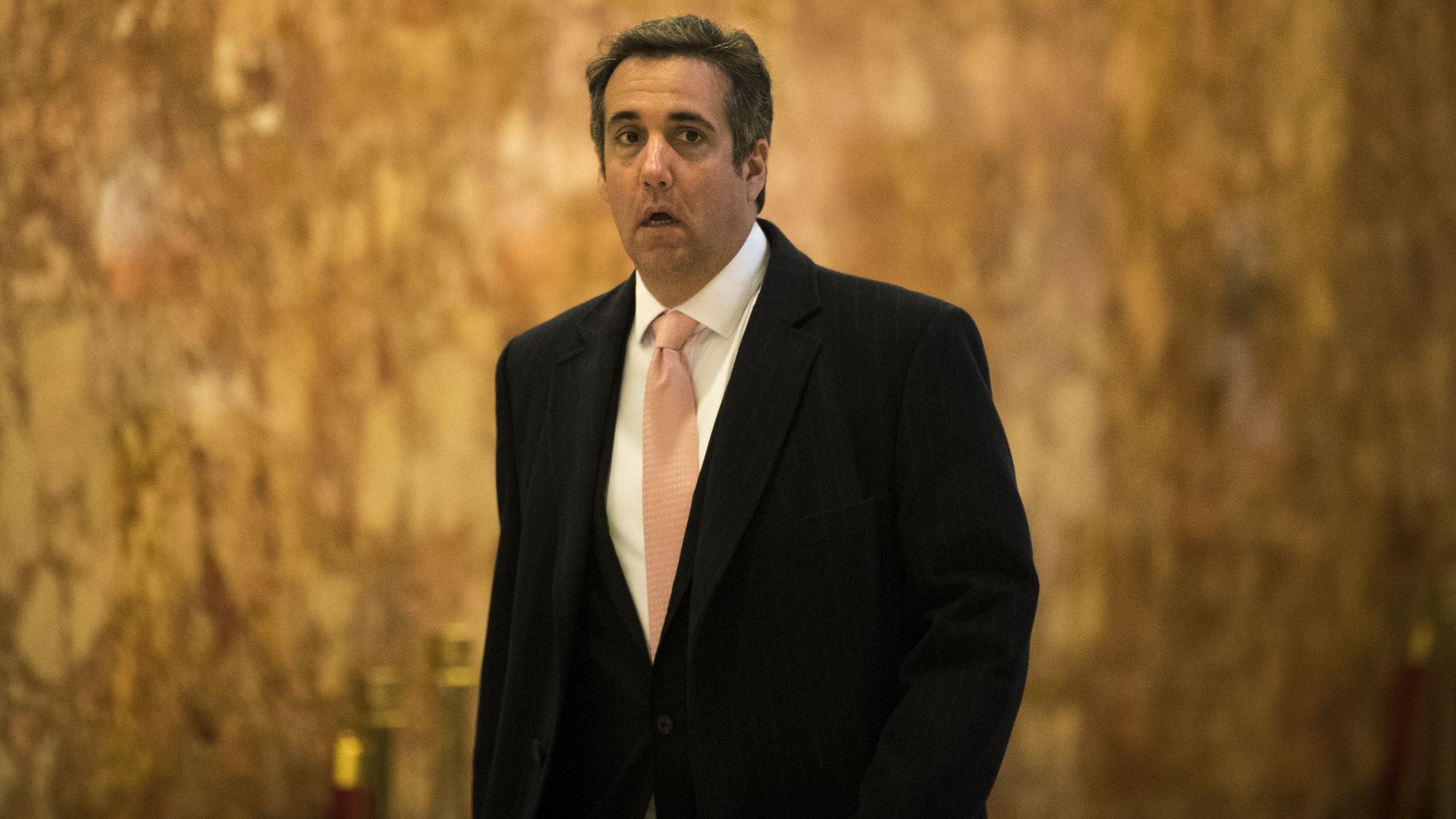AT&T’s influence war hits a Michael Cohen-shaped wall
Add Axios as your preferred source to
see more of our stories on Google.

Michael Cohen. Photo: Drew Angerer/Getty Images
In a matter of days, the Michael Cohen-AT&T affair has disrupted one of the most sprawling influence operations in Washington.
Why it matters: The scandal over AT&T’s payments to Trump attorney Cohen — which led the telecom to announce the retirement of its top lobbyist Friday — shakes up its war with Google and Facebook for regulatory wins and digital advertising dollars.
The big picture: D.C. lobbying circles are buzzing over the departure of Bob Quinn. In late 2016, he took over the company’s famously-wired and influential Washington office, which spent $16.78 million on federal lobbying last year, and turned its fire squarely on Google and Facebook.
- When Congressional Republicans decided in spring 2017 to roll back Obama-era FCC privacy rules that applied to broadband providers like AT&T, the company’s pitch was simple: Google and Facebook should have to live by the same rules internet service providers do when it comes to collecting and sharing user data.
- "If the government bans the ISP from that data but allows, for example, OS providers, app developers and everyone else who has software running on your phone to collect your location and internet data, use it, share or sell it, that does not protect but rather confuses the consumer,” Quinn wrote at the time.
- That summer AT&T backed a bill that would apply the same privacy rules to ISPs and to web services like Google and Facebook. Quinn said on television that he was “very much in favor” of the bill “because it does the things that are most important to AT&T.”
Throughout 2017, AT&T picked up major wins at the FCC. The agency repealed net neutrality rules — which banned ISPs from blocking, throttling and offering fast lanes for content — and lifted price caps on a multi-billion market for wholesale broadband in which AT&T is a big player.
- Its only loss was a big one: the Trump Justice Department sued in November 2017 to block its proposed $85 billion purchase of Time Warner.
- The lawyer AT&T hired to litigate the suit, Daniel Petrocelli, also had Trump connections; Petrocelli represented Donald Trump in lawsuits over his Trump University classes.
- Unlike AT&T's top lawyer, Quinn's portfolio was Congress and regulators, not the courts, and he wasn't a presence at the trial this year.
AT&T upped the ante on its war against Big Tech this year.
- In January it took out full-page ads declaring that, not only should the same privacy rules apply to both their products and those of Facebook and Google, but that those companies face net neutrality rules, too.
- “Congressional action is needed to establish an ‘Internet Bill of Rights’ that applies to all internet companies and guarantees neutrality, transparency, openness, non-discrimination and privacy protection for all internet users,” said CEO Randall Stephenson in the ad.
- Quinn echoed that point in March during a television appearance: “I think in some areas, I think more and more our companies are competing with one another and we really have to live under the same rules.”
What they’re saying: The strategy isn’t totally surprising coming from a company that’s been highly regulated for decades. “I think AT&T for the most part, they have an Option A and an Option B. Their Option A is they don't want to be regulated,” said a longtime Capitol Hill policy aide. “Their Option B is as long as they’re going to be regulated, they want everyone else to be regulated, because they figure they can handle it better than anyone else.”
- “It’s really interesting to see almost tectonic shifts here with [Quinn] moving on,” said another staffer.
- An AT&T spokesperson referred Axios to the several statements released throughout the week about the Cohen story.
The strategy Quinn spearheaded was aligned with AT&T’s business ambitions. In court, it had argued that it needs to merge with Time Warner so that it can compete with Google, Facebook, Netflix and other major players of the internet economy.
The bottom line: The Cohen issue comes at a critical time for AT&T. Judge Richard L. Leon, who presided over the trial between AT&T and the DOJ, is expected to decide the fate of the company's merger in the next few weeks.
